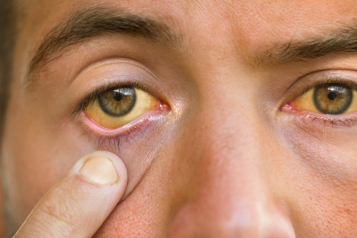What is Heart valve disease?

What do heart valves do?
Your blood flows around your heart and the rest of your body in one direction, like a one-way traffic system. Your heart valves control the direction of your blood flow. They have very small flaps of skin called leaflets (sometimes called cusps) that open and close like doors with every heartbeat. They stop the blood flowing backwards.
There are four valves in your heart, they are:
- the tricuspid valve and the pulmonary valve on the right side of the heart
- the mitral valve and the aortic valve on the left side of your heart.
The human heart works like a pump sending blood around your body to keep you alive. The blood delivers oxygen and nutrients to all parts of your body to help your organs and muscles work properly.
Find out more about how your heart works.
What is heart valve disease?
Heart valve disease is when one or more of your heart valves don’t work like they should.
There are several types of heart valve disease. The main problems are caused by the valve not opening fully or the valve not closing properly:
If the valve doesn’t open fully, it will block or restrict the flow of blood. This is called valve stenosis or valve narrowing.
If the valve doesn’t close fully, the blood will leak back into the heart instead of forwards into the body. This is called valve incompetence, valve regurgitation or a leaky valve.
These problems can put extra strain on your heart and make your heart work harder. This can cause you to have symptoms like feeling more tired and out of breath. And over time, it can increase your risk of having a heart attack, a stroke and other heart conditions.
What causes heart valve disease?
The main causes of heart valve disease are:
- being born with an abnormal valve or valves (congenital heart disease)
- having had rheumatic fever
- cardiomyopathy - a disease of the heart muscle
- damage to the heart muscle from a heart attack
- getting older
- a previous infection with endocarditis
What are the symptoms of heart valve disease?
Some people with heart valve disease don’t have any symptoms, other people can have multiple symptoms. There is no link between how serious your heart valve disease is and how many symptoms you feel or how serious your symptoms are. You can have serious symptoms and mild heart valve disease or the opposite, everyone’s symptoms are different.
Some of the common symptoms are:
- shortness of breath and being breathless
- feeling weak or dizzy
- discomfort in your chest
- swollen ankles and feet
- being unusually tired
- palpitations (a fluttering or pounding feeling in your chest or neck)
How is heart valve disease diagnosed?
If you are having symptoms, your doctor will suggest doing some tests to see how your heart is working.
The most common test is an echocardiogram. Your doctor might also suggest a chest x-ray or an ECG (electrocardiogram).
If you aren’t having symptoms, your doctor can still pick up signs of possible problems with your heart if they listen to the rhythm of your heart. If your doctor hears a murmur (an unusual sound), they may refer you for further tests to see how your heart is working
The Ticker Tapes Podcast
Alex Martin's hope of joining the army was dashed after a shock diagnosis. Alex talks about the physical challenges and emotional strain as he recovers from a major operation, and adjusts to a new life with a mechanical heart valve. Hear his story and other real experiences from people living with heart and circulatory diseases.
How is heart valve disease treated?
Your doctor may describe your condition as mild, moderate or severe, based on the results of your tests. Treatment is different for each level.
If you don’t have symptoms and your heart valve disease is mild, you might not need treatment. Your doctor will usually suggest that you still have regular check-ups and tests to see how well your heart is working.
If you are having symptoms or your heart valve disease is severe, you may need to take medication. It will reduce the risk of your heart being damaged or strained. Some people may also need surgery.
There are different types of surgery for heart valve disease. The type of surgery you might need will depend on the cause of your valve problem and the effect it’s having on your heart. If you need surgery, your doctor and a specialist team will discuss the treatment options with you.
Your healthcare team will understand that being diagnosed with heart valve disease and treating it can be hard to deal with. If you have any concerns or questions, you can talk to your healthcare team who will support you.
Find out more about heart valve surgery and treatment.
Living with heart valve disease
Many people with heart valve disease can live their normal life but everyone will be affected differently. It is important to check what you can do with your doctor. They will be able to advise you on work, exercise, diet and any other concerns or questions you have.
Most people can work and do some form of exercise. Being physically active won’t improve how your valve works but it is good for your overall health. It can help boost your mood and help you sleep better.
You can trust our health information
We've followed an eight-step process to make sure this content is reliable, accurate and trustworthy. Learn how we make our health information reliable and easy to understand.
For more information about this and other heart conditions visit
* Please note, this information from the British Heart Foundation was correct as on September 2021. It will be reviewed on September 2024
The image used for this article has been supplied by Canva



